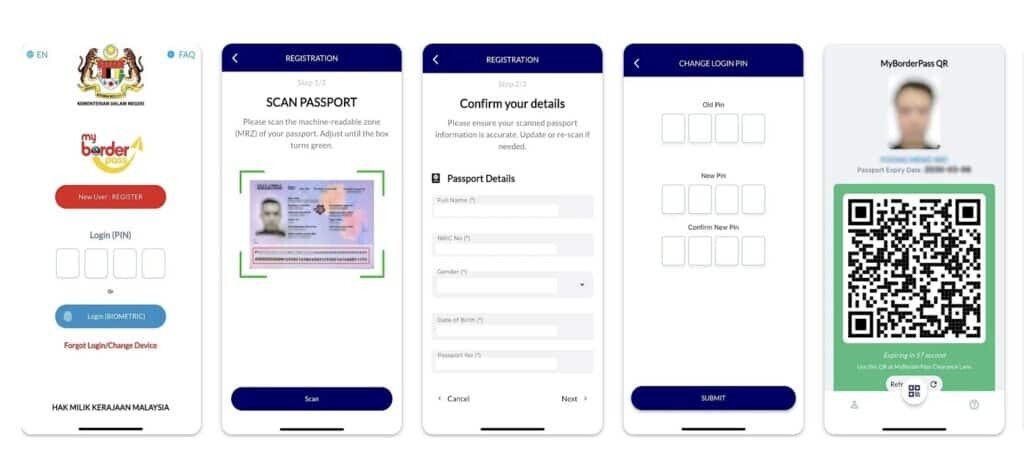
KUALA LUMPUR – Malaysia is set to revolutionize its immigration process with the expansion of its QR code clearance system for international travelers, slated to begin on January 1, 2026. This initiative, announced by the Malaysian government, aims to streamline border control and enhance efficiency at entry points.
Currently, the QR code clearance system, accessible through the MyBorderPass mobile application, is exclusively available to Malaysian citizens. However, the government plans to extend this service to travelers from at least 63 countries and those holding long-term entry passes.
The MyBorderPass app requires users to download it, scan their passport details, and complete facial biometric registration. This digital approach promises to significantly reduce processing times and alleviate congestion at immigration counters.
Home Minister Datuk Seri Saifuddin Nasution Ismail, in a recent parliamentary address, highlighted the benefits of this expansion. He noted that travelers from the designated countries are already utilizing biometric gates at Kuala Lumpur International Airport for identity verification. The integration of QR code technology will further expedite this process.
“The QR code system allows for checks to be completed in just five seconds, a substantial improvement compared to the 15 seconds required for biometric gates and the potentially lengthy manual checks,” stated the minister.
Moreover, the expansion is expected to reduce the reliance on immigration officers at border posts. The minister indicated that the current deployment of 172 officers could be reduced to approximately 68, leading to more efficient resource allocation.
The MyBorderPass app, which launched its trial phase earlier this year, has already garnered over 786,000 downloads, demonstrating its popularity and effectiveness. The app is lauded for its user-friendly interface and robust data security features, allowing travelers to conveniently check their travel status.
This initiative builds on Malaysia’s successful pilot of a biometric clearance system at its border with Singapore last year. It also aligns with Singapore’s implementation of a passport-less system that utilizes QR codes for immigration control.
The Malaysian government’s move towards a digital immigration system underscores its commitment to modernizing border security and enhancing the travel experience for both domestic and international visitors. The implementation of the QR code clearance system is expected to significantly improve efficiency, reduce wait times, and strengthen security measures at Malaysia’s entry points.
[Copyright (c) Global Economic Times. All Rights Reserved.]



























